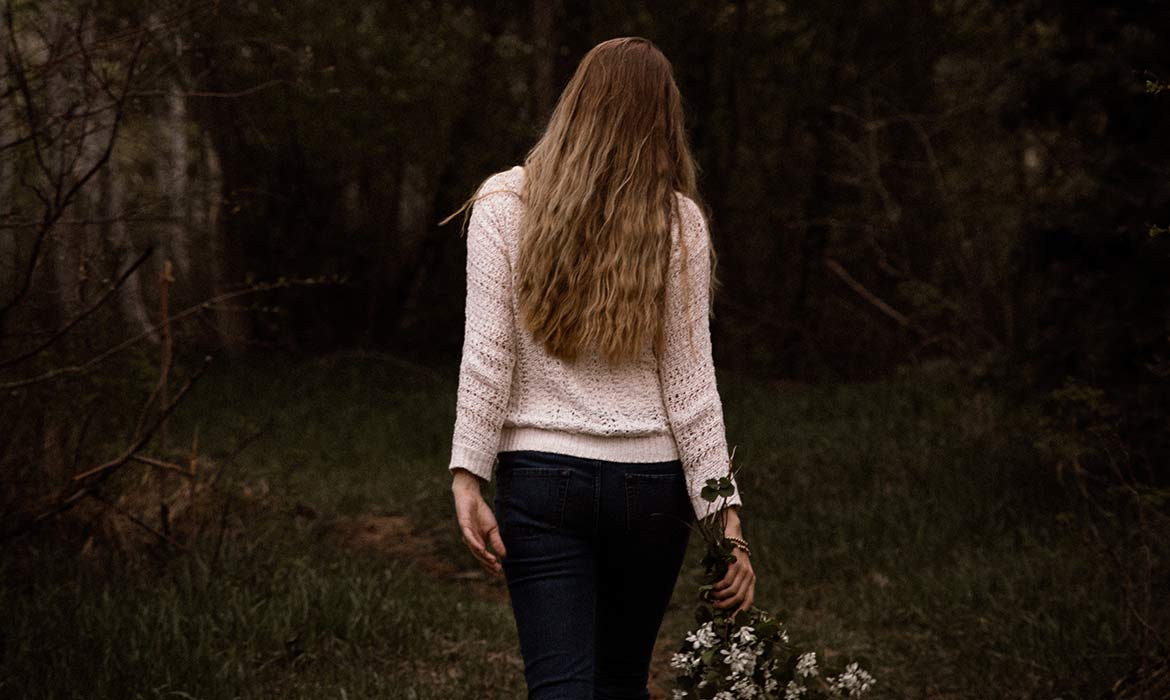I was raised essentially fatherless.
I was nine years old when I met my biological father for the first time. I only remember speaking to my father on two occasions. Then, he died in prison when I was twelve. This reality punctured gaping holes into my heart and left me at risk of grasping at something, anything, to fill the void.

During my teen years, I craved the attention of boys. Then, my marriage to my children’s father left me feeling my way through the dark, cavernous space of wanting—no, needing—a man to be what my father should have been for me all along, and wasn’t. The security, provision, and nurturing I desperately needed as a child were elusive, at best, so any amount of these I received as an adult never quite felt like enough.
As a result, I used to notice dads everywhere who did fatherly things for their sons and daughters, but especially for their daughters. The look in their eyes as they carefully attended to their children’s needs uncovered the enduring wounds of my fatherless heart once again. When they watched their daughters sing, play, or dance onstage or play a sport, I could see the pride in their eyes. Each instance cut deep and reminded me of what I lacked. Every year, Father’s Day brought the ache to the surface.
You may have a similar ache in your heart as you read this, even if you had a dad in your life, but especially if you didn’t. Most dads, even the good ones, leave some holes in the hearts of their children. That’s a normal part of the human experience. It’s also a reality that our earthly fathers cannot meet all our needs. God never intended for them to become our be-all and end-all forever. He designed them to provide love, care, affection, and attention, along with meeting our material needs. However, that doesn’t always happen, even when dads do their very best to meet those emotional and physical needs.

Because they are human, all fathers leave holes in the hearts of their children. For some people, these wounds go deeper than they do for others. Some of these wounds leave marks on the body, others pierce deep into the heart.
No matter where the wounds are located, they all need healing. Based on my own experience, I can tell you that healing is both a process and a journey. I wish I could give you a simple formula to follow. Honestly, I wish someone had given me a formula! There is no such formula, but there are some practical things you can do. These exercises have helped me on my decades-long healing journey.
Acknowledging that the ache is there and that the wound hasn’t healed is the first step of the journey. For this step, I seek a quiet place to spend uninterrupted time alone with God. I recommend talking out loud to God, but if talking out loud to Him makes you feel uncomfortable, then sit down with a trustworthy friend. Somehow, speaking the words out loud has a way of bringing our pain to the forefront of our mind where the healing process can begin. Please understand that if the wounds you’ve carried can be described as traumatic or abusive, consider talking to a professional, Christian counselor.

Neurologist Dr. Caroline Leaf says that when our thoughts or memories are brought to the conscious mind, they become malleable or changeable. Begin with language like this, for example: “God, my dad wasn’t around much, and I missed out on a lot . . .” Then go into detail about a specific memory that surfaces. Sometimes, just saying the words out loud and acknowledging the painful experience is enough. Other times, writing down what happened helps. Whatever works for you is the way to go. Ask God what He thinks about what happened and then listen quietly for His response. When I hear kind, loving thoughts following what I’ve confessed, I write down those words, too. That’s when I know the Holy Spirit is speaking to my heart.
I (and others) can give you advice all day long, but when the Holy Spirit speaks comforting words to you, that’s when your healing journey will be accelerated.
The word “Holy Spirit” in the Greek is paraklétos and translates to advocate, comforter, helper, intercessor, and consoler. Just reading that list reminds me that the Holy Spirit is called the Comforter for a reason, as addressed in both Isaiah 66:13, “I will comfort you . . . as a mother comforts her child,” and 1 Corinthians 1:4, “He comforts us in all our troubles so that we can comfort others” (NLT). I have learned to be comfort-able (quite literally “able to be comforted”) in and by His presence more and more.
Just like medicine needs to be reapplied on occasion, I’ve often needed to revisit some of the same events several times before the healing process reaches a culmination, the wound heals, and then scars over. Though the scars may leave me with a reminder of the ache that seemed never-ending, the searing pain no longer paralyzes me.

Now, when I see dads doing fatherly things for their sons and daughters, I’m filled with gratitude. I can see myself in their shoes, being fathered by my heavenly Father. It’s especially meaningful for me to hear about others being healed from past wounds and set free to become the people that they were created and redeemed to be as I’ve shared my story. Like me, many have refused to stay “stuck” in the pain of having experienced fatherlessness. I invite you to pursue and embrace the comfort, healing, and wholeness the Father offers. My prayer is that you will find joy in being comforted by Him.
 by Anna LeBaron, author of The Polygamist’s Daughter
by Anna LeBaron, author of The Polygamist’s Daughter
My father had thirteen wives and more than fifty children . . .
This is the haunting memoir of Anna LeBaron, daughter of the notorious polygamist and murderer Ervil LeBaron. Ervil’s criminal activity kept Anna and her siblings constantly on the run from the FBI. Often starving, the children lived in a perpetual state of fear—and despite their numbers, Anna always felt alone. Would she ever find a place she truly belonged? Would she ever be anything other than the polygamist’s daughter?
Filled with murder, fear, and betrayal, The Polygamist’s Daughter is the harrowing, heart-wrenching story of a fatherless girl and her unwavering search for love, faith, and a place to call home.





3 Comments
Thank you for the very wise and comforting words, Anna!! I have struggled with some complicated father wounds and this sentence was especially meaningful for me: “Just like medicine needs to be reapplied on occasion, I’ve often needed to revisit some of the same events several times before the healing process reaches a culmination, the wound heals, and then scars over.”
Growing up, so many of my friends did not have the loving and devoted dad I was blessed to have. My own husband’s relationship with his father was distant and strained. I think it’s safe to say that there are many folks who live most of their adult lives trying to compensate for a distant or abusive father/child relationship, whether minor or major–and is any abuse or bad treatment by a father ever minor? Your very helpful suggestions can be the catalyst for healing. Thank you for your courage in sharing your painful story with us. To see what our Heavenly Father has accomplished in your life is encouragement to all of us.
This touched a deep place in my heart and once again aids in my personal journey toward healing. For me, my father left when I was four years old and was not interested in having a relationship with me. No contact. Of course this left gaping holes in my heart and a longing for a father’s love. I am thankful for the love of Daddy God. He has healed me and He has set me free. Thank you Anna for sharing your story. You are helping in ways you do not even know!